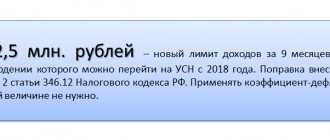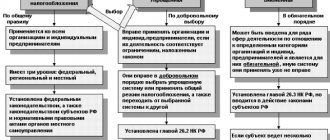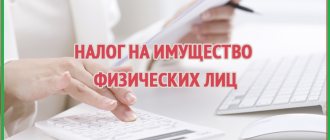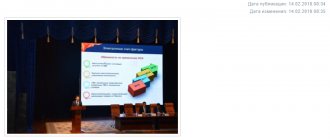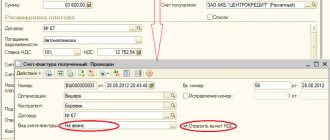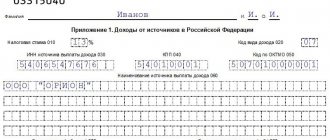From the beginning of 2021, an increased VAT rate came into effect. Now it is 20%. In this regard, entrepreneurs had to prepare for changes. A company may have an agreement that was concluded before the new year, but continued to be valid after the onset of 2021. It is assumed that prices are indicated taking into account the previous VAT of 18%. Is it necessary to draw up an additional agreement in this case? It all depends on the specific case.
- Form and sample
- Free download
- Online viewing
- Expert tested
FILES
VAT deduction: overview of recent changes
Federal Law No. 63 provides the right to deduct “input” VAT within the framework of activities carried out abroad. The tax can be deducted from 07/01/2019 when carrying out export transactions for the performance of work, provision of services, sale of goods, transfer of rights to property (Article 148 of the Tax Code of the Russian Federation).
Services provided and work performed will be taken into account as part of VAT-taxable transactions. This will allow the “input” tax to be distributed between taxable and non-taxable activities. Before the amendment, this tax was taken into account as an expense. If the share of non-taxable transactions is no more than 5%, then the payer will be able to fully take into account VAT as part of the deduction. Thus, in order to save money, companies will not have to reduce the amount of income tax by the amount of VAT on the performance of work and services for export purposes.
Let us emphasize once again that deductions apply to VAT amounts arising in connection with the implementation of work and services abroad, that is, not in the Russian Federation (according to the additions to Article 171 of the Tax Code of the Russian Federation). The essence of this 5% rule is as follows:
- transactions for the provision of services and the sale of goods abroad are considered taxable;
- “input” VAT on goods and services for any transactions does not have to be distributed by quarter, taking into account expenses;
- VAT is fully deductible (clause 4 of Article 170 of the Tax Code of the Russian Federation).
An exception to the rules are transactions (Article 149 of the Tax Code of the Russian Federation) that are exempt from VAT. For example, transfer of rights to software to foreign organizations on the basis of a license agreement. According to them, the “input” tax will be written off as expenses as before. In addition, it is worth taking into account the changes prescribed in Art. 170 of the Tax Code of the Russian Federation concerning the procedure for assigning VAT amounts to production and sales costs.
Transactions on a gratuitous basis are not subject to VAT, in accordance with the amendments made to Art. 146 of the Tax Code of the Russian Federation. The following gratuitous transactions are exempt from tax:
- transfer of social and cultural objects in favor of regional or municipal authorities;
- transfer of real estate in favor of the Russian state;
- transfer of property to the state for research in Antarctica.
When to enter into an additional agreement
Example. in 2021 entered into an agreement with for the supply of building materials. made an advance payment in 2021, but she received the parts only in 2021. If an additional agreement is not concluded, one of the companies will suffer losses due to an increase in VAT.
You can record an increase in VAT in the following ways:
- Price adjustment taking into account the changed VAT rate. You can specify from what date the new cost will be applied.
- Indication of the cost without indicating the exact VAT rate, with reference to paragraph 3 of Article 164 of the Tax Code.
- Fixation of cost taking into account the new VAT, taking into account paragraph 3 of Article 164 of the Tax Code.
It is recommended to make a reference to Article 164 of the Tax Code, on the basis of which the VAT rate changes.
Which organizations will be affected by the amendments to Federal Law No. 63?
Legislative changes will affect the activities of companies exporting works and services, as well as leading foreign projects. These are organizations from various fields of activity, including:
- in IT technologies (providing certain types of electronic services, creating programs for customers from other countries);
- organizations in the infrastructure sector, including those engaged in construction and providing engineering services abroad;
- mechanical engineering and industrial projects, for example, equipment repair outside Russia;
- provision of professional services in the field of law, marketing, consulting, etc.;
- transport and transportation on the territory of foreign countries;
- leasing of certain types of property, for example, machinery, equipment, equipment.
How will the changes affect business?
Companies engaged in the export of works and services will have the opportunity to increase the share of VAT included in the deduction. Tax and accounting specialists will have to reconsider the method of separate VAT accounting for taxable and tax-exempt activities. If the amount to be deducted increases, VAT will be reimbursed from the budget.
Attention! Organizations are required to regularly confirm that Russia is not the place where their services are sold. For example, submit documents about the customer’s activities outside the Russian Federation.
To apply for a VAT deduction from July 1, 2019, you will need an invoice (Article 169 of the Tax Code of the Russian Federation), submitted in paper or electronic form. An electronic document is generated by mutual agreement of the parties to the transaction. Invoices must include the following information:
- name and cost of products (works, services);
- information about the contractor and the customer;
- tax rate and amount.
It is important that existing agreements allow VAT to be deducted when “exporting” services and works. If legislative changes are not provided for in documents, profits will decrease and the competitiveness of the enterprise will deteriorate. The implementation of changes, as promised by the Government, should lead to a significant effect.
Is it necessary to create an additional agreement?
A revision of the contract is necessary to resolve the price difference that arose due to changes in the amount of VAT. An additional agreement is drawn up for revision. But it is not always necessary to adjust the contract. The corresponding clarifications are contained in the letter of the Federal Tax Service inspection No. SD-4-3 / [email protected] dated October 23, 2021. Tax representatives indicated that the new rate will be applied automatically. This is relevant even when the contract specifies a rate of 18%.
There is no need to draw up an additional agreement if these conditions are met:
- The contract contains a provision that allows the price to be increased unilaterally if the VAT rate increases.
- The contract contains a provision for agreeing prices in additional documents.
- The price does not include VAT. In this case, the document must contain the appropriate wording.
If the agreement does not comply with these conditions, it is recommended to draw up an additional agreement. This is not provided for by law, but such a measure will help entrepreneurs avoid conflicts.
IMPORTANT! If there is no wording in the contract regarding VAT, then by default it will be considered that it is included in the price.
For what transactions does the deduction not apply?
For the areas of activity specified in Article 149 of the Tax Code, separate accounting and write-off of input VAT on expenses will continue to be applied. This category includes activities not related to the sale of goods and provision of services, for example, transfer of property during business reorganization, upon exit from a joint stock company or its liquidation, and foreign exchange transactions. In addition, these are tax-free transactions, for example, transfer of real estate to the state, privatization of property, sale of land, sale of property of bankrupt debtors.
Medical products from a special list (RF PP dated September 30, 2015 N 1042), residential buildings, individual premises and shares in them, as well as food products sold through catering in schools, universities, and hospitals are not subject to VAT. Licensed activities, as well as companies and entrepreneurs acting in their own interests, are not taxed.
If an enterprise carries out various types of activities, some of them are subject to VAT, while others are exempt from VAT under Art. 149 of the Tax Code of the Russian Federation, then their separate accounting becomes a prerequisite.
VAT: new cases and rules for tax recovery
The main VAT amendments concern situations where taxpayers must reinstate the tax.
Restoration of VAT upon transition to UTII
The clarifications introduced by Law No. 325-FZ to the rules for the restoration of VAT during the transition to special regimes remove many controversial issues. Some changes give taxpayers concessions. An example is the restoration of VAT upon transition to UTII (provided that OSNO is maintained for other types of activities).
From January 1, 2021, in such situations, organizations and individual entrepreneurs will be able to significantly reduce the recoverable VAT amounts if they carefully maintain separate accounting. According to the new rules, those taxpayers who, after the transition to UTII, will continue to pay VAT (for other types of activities), have the right to restore VAT only after they actually begin to use the corresponding goods, work, services, fixed assets or intangible assets in the activities transferred to UTII . The tax will need to be restored in the period when the taxpayer began to use these objects in the specified manner (new edition of subparagraph 2, paragraph 3, article 170 of the Tax Code of the Russian Federation). Separate accounting will make it possible to determine at what point it is better to transfer this or that object to an activity subject to UTII. And this, in turn, will make it possible to legally restore VAT in the most appropriate period.
Keep separate records and submit VAT and UTII reports via the Internet
VAT restoration during reorganization
The rules for VAT recovery during reorganization have also been clarified. Clause 3.1 of Article 170 of the Tax Code of the Russian Federation directly states that successors must restore VAT (including VAT on advances) accepted for deduction by the predecessor if, after the reorganization, they begin to use the received objects in activities not subject to VAT, including when switching to the simplified tax system , UTII or PSN. At the same time, legislators described in detail exactly how and on the basis of what documents it is necessary to restore VAT in each specific case of reorganization.
Thus, as a general rule, the successor recovers VAT on the basis of invoices or their copies attached to the separation balance sheet or transfer deed drawn up during the reorganization.
Carry out automatic reconciliation of invoices with counterparties
And if there are no such documents, then you will need an accounting certificate using the VAT rate in effect at the time of acquisition of the relevant objects.
Regardless of which document (invoice, its copy or accounting certificate-calculation) the tax is restored, the amount of VAT on goods, works and services is determined based on their full cost, and on fixed assets and intangible assets - in proportion to their residual (book) value indicated in the separation balance sheet or in the transfer deed.
As for the tax restoration period, the general rule for reorganization here is the same as for “your own” VAT. The tax must be restored in the period when the relevant objects began to be used in activities not subject to VAT, and when the assignee switches to special regimes - in the quarter preceding such a transition.
There are exceptions to this general rule. Firstly, if the legal successor does not switch to UTII completely, but only for certain types of activities, and continues to apply OSNO for the rest, then the provisions mentioned above apply (new edition of subparagraph 2, paragraph 3, article 170 of the Tax Code of the Russian Federation). Namely: VAT must be restored only for those objects that are actually used in “imputed” activities, and only in the period when they began to be used in this way.
Submit all reports for a newly created or reorganized company via the Internet for free
Secondly, if as a result of the reorganization a new organization is formed (this is possible during a spin-off, division, merger or transformation), and it decides to switch to the simplified tax system or UTII, then VAT on objects received during the reorganization will need to be restored in the first quarter of application of the corresponding special regime. The restored tax must be paid and the return must be submitted no later than the 25th day of the month following this quarter. This period is established in the updated versions of paragraphs 4 and 5 of Article 174 of the Tax Code of the Russian Federation.
Thirdly, if an organization on OSNO has merged with another organization on the simplified tax system or on UTII, then the VAT accepted for deduction by the affiliated organization must be restored in the first quarter following the quarter in which an entry was made in the Unified State Register of Legal Entities about the termination of the activities of the affiliated entity. legal entity. The restored tax, as in the previous case, must be paid no later than the 25th day of the month following the quarter in which the tax was restored. Within the same period, you must submit a VAT return, reflecting the restored tax amount.
Fill out, check and submit your VAT return online for free
Finally, fourthly, if the assignee began to use real estate objects, as well as works (services) purchased for construction and installation work, including for his own consumption, in transactions not subject to VAT, then the tax is restored according to the rules of Article 171.1 of the Tax Code of the Russian Federation. This is stated in the new paragraph 11 of Article 171.1 of the Tax Code of the Russian Federation.
Let us recall that Article 171.1 of the Tax Code of the Russian Federation allows not to restore VAT on fully depreciated fixed assets, as well as in cases where 15 years or more have passed since the OS was put into operation. In other situations, VAT restoration can be “stretched out” for 10 years.
It is also necessary to take into account that the rules of Article 171.1 of the Tax Code of the Russian Federation in relation to the specified objects (real estate, as well as works and services purchased for construction and installation work) apply to VAT restored by the successor in any of the situations listed in paragraph 3.1 of Article 170 of the Tax Code of the Russian Federation, including including when switching to special modes. If the taxpayer restores “his” VAT on the specified objects, then he must be guided by the previous norms. Officials and judges explained that in this case, VAT is restored at a time and without taking into account the 15-year rule (letters from the Ministry of Finance of Russia dated 02.16.12 No. 03-07-11/47 and the Federal Tax Service dated 12.13.12 No. ED-4-3/21229, Resolution of the Presidium of the Supreme Arbitration Court of the Russian Federation dated December 1, 2011 No. 10462/11).
All of these innovations come into force on January 1, 2020.
Check the counterparty for signs of a shell company, bankruptcy and the presence of disqualified persons
